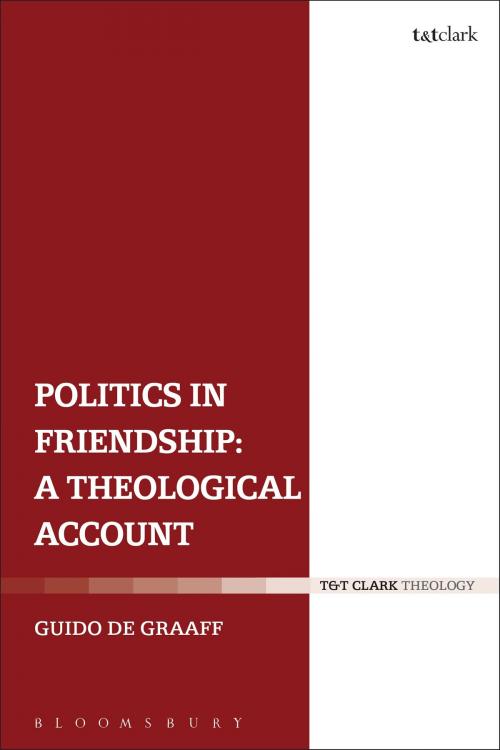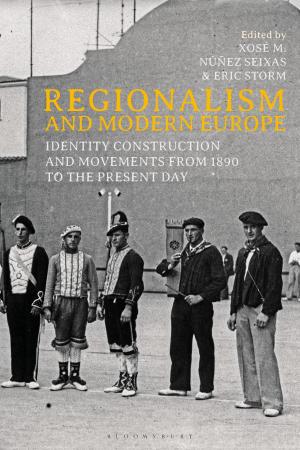Politics in Friendship: A Theological Account
Nonfiction, Religion & Spirituality, Theology, Christianity| Author: | Dr Guido de Graaff | ISBN: | 9780567655622 |
| Publisher: | Bloomsbury Publishing | Publication: | September 25, 2014 |
| Imprint: | T&T Clark | Language: | English |
| Author: | Dr Guido de Graaff |
| ISBN: | 9780567655622 |
| Publisher: | Bloomsbury Publishing |
| Publication: | September 25, 2014 |
| Imprint: | T&T Clark |
| Language: | English |
Guido de Graaff explores the political dimension and significance of friendship, arguing that its specific contribution lies not only in its theological approach, but also in its particular focus distinguishing the 'political' from the 'social' and/or 'civic'. The book's explorations are framed around a particular story of friendship: the story of Bishop George Bell and German theologian Dietrich Bonhoeffer. Drawing on Hannah Arendt and Oliver O'Donovan, de Graaff argues that Bell and Bonhoeffer's story can be read as one of friends assuming the responsibility of political judgment in an emergency situation - their story casts doubts on secular politics as the primary context for interpreting the friends' judgments. Thus the book provides a more comprehensive account of the story, also interpreting it against the background of the life of the church (with special attention to John 15 and Romans 12). De Graaff concludes by showing how a theological account is vital for discerning the distinct politics of the church, including opportunities for Christian engagement in secular politics.
Guido de Graaff explores the political dimension and significance of friendship, arguing that its specific contribution lies not only in its theological approach, but also in its particular focus distinguishing the 'political' from the 'social' and/or 'civic'. The book's explorations are framed around a particular story of friendship: the story of Bishop George Bell and German theologian Dietrich Bonhoeffer. Drawing on Hannah Arendt and Oliver O'Donovan, de Graaff argues that Bell and Bonhoeffer's story can be read as one of friends assuming the responsibility of political judgment in an emergency situation - their story casts doubts on secular politics as the primary context for interpreting the friends' judgments. Thus the book provides a more comprehensive account of the story, also interpreting it against the background of the life of the church (with special attention to John 15 and Romans 12). De Graaff concludes by showing how a theological account is vital for discerning the distinct politics of the church, including opportunities for Christian engagement in secular politics.















